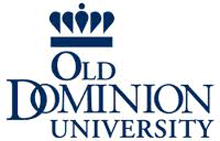Procurement certification is available through Old Dominion University

Norfolk, Va.-based Old Dominion University (ODU) offers a graduate certificate program in public procurement and contract management. The certificate can be earned through a stand-alone course of study that does not require enrollment in a degree program at ODU, or as an area of concentration in the Master of Public Administration program or the Master of Business Administration program in the College of Business and Public Administration at ODU.
Here are the views of the director of the ODU certificate program, Stephen B. Gordon.
Govpro: Are certifications useful career tools for public procurement officials?
Stephen Gordon: Professional certifications and academic certificates both play significant roles in enhancing the positive contribution that public procurement can make in serving the public interest. The two approaches differ in several noteworthy respects, but they are and must be viewed as complementary to one another.
Professional certifications are designed to assure a level of knowledge to practice a professional specialty and typically require a minimum amount of experience in that specialty. In contrast, graduate certificate programs are designed to create awareness of the potential of strategic public procurement, and anyone who meets the typically more open entry requirements for an academic certificate program can pursue the certificate offered through the program. The sole entry requirement for the Graduate Certificate in Public Procurement and Contract Management program at Old Dominion University (ODU) is a baccalaureate degree from an accredited university.
At ODU we believe that absence of a requirement for previous work experience to enter the graduate certificate program is a good thing, because it offers individuals not working in a public procurement position, including senior management and other stakeholders, [an opportunity] to gain an understanding of how the particular function — if properly positioned, resourced, staffed, and led — can help achieve enterprise goals. It also provides a gateway for motivated and capable individuals to enter the particular field covered by the certificate program.
Govpro: How do professional certifications and academic certificate programs differ?
SG: [Some] differences between professional certifications and academic certificate programs include:
• A professional certification results from an assessment process, whereas an academic certificate results from an educational process.
• A professional certification typically requires a minimum amount of previous work experience in the particular field covered by the certification, but a professional certificate can be pursued by students and other individuals who have no relevant work experience as well as by individuals who are experienced in the field.
• Whereas professional certifications typically are conferred by third-party, standards-setting organizations such as the Universal Public Procurement Certification Council, academic certificates are offered by an educational program or institution such as Old Dominion University.
• Receipt of professional certification denotes mastery of a body of knowledge established and maintained by the particular third-party, standards-setting organization; an academic certificate is earned by completing one or more traditional academic courses in the program curriculum for the certificate.
• The body of required knowledge and skills for a professional certification program are established and maintained through a defensible, industry- or profession-wide process typically involving job analysis and role delineation, while the course content for certificate programs can be set through a variety of way, typically involving scholarly research and academic approval processes.
• Those individuals who earn a professional certification typically get to use a designation, such as a CPPO or CPPB, after their name; they also usually receive a document that can be framed and hung on the wall. Individuals who receive an academic certificate can reflect that accomplishment on their resume; they also usually receive a document to frame and hang on their wall.
• Professional certification holders must “re-certify” after a specified period of time, whereas there typically are no “refresher” requirements for academic certificates.
Govpro: Can you tell us about the online part of the ODU certificate program?
SG: Old Dominion University will have all four of the required courses in the Graduate Certificate in Public Procurement and Contract Management Program available online by the end of calendar year 2013. Those courses are PADM 726, Introduction to Public Procurement; PADM 728, Public Sector Contract Planning and Formation; PADM 731, Public Sector Procurement Law and Ethics; and PADM 718, Public Sector Contract Administration. PADM 726, Introduction to Public Procurement, will be offered online, for the first time, in the 2012 fall semester.




















